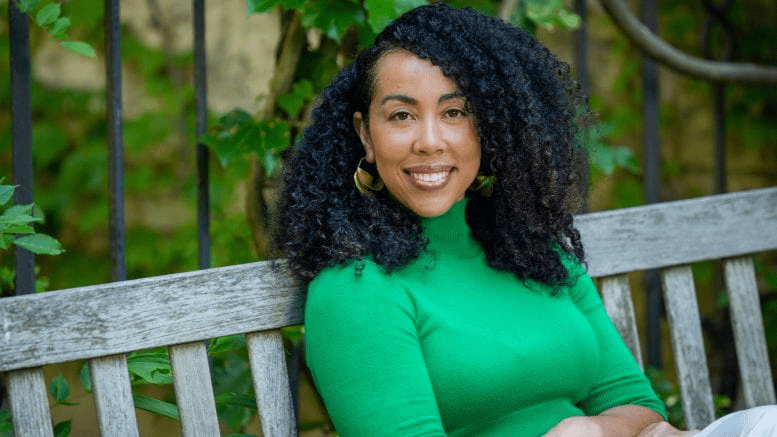Professor kihana miraya ross to study new Evanston reparations
September 10, 2021

In March of 2020, the City of Evanston became the first U.S. municipality to agree to pay Black residents reparations. Black residents can receive up to $25,000 if they were affected by discriminatory housing policies and practices, which the city failed to address until the passage of fair housing laws in the 1960s.
Professor kihana miraya ross, of the Department of African American Studies, has received a $250,000 grant from the Spencer Foundation to study these new reparations and policies as they unfold in real-time.
“In recognizing the debt owed to its Black residents and pledging actual dollars towards repairing centuries of educational inequities, Evanston is in unchartered waters. The world will be watching as the first city in the U.S. to approve reparations embarks on an unparalleled move toward educational justice for its Black residents,” ross said.
ross is also one of 21 recipients of the 2021 Northwestern Racial Equity and Community Partnership grant, which aims to address problems of racial inequity in local neighborhoods. The grant will fund a project that will amplify the voices of Black Evanston residents as they organize a community-directed redress of ongoing racialized educational harm and inequities. While independent of her reparations research, ross’ two projects are closely related.
The research will include the oral histories of Evanston community members who attended Foster School, an all-Black neighborhood elementary school in the 5th Ward. Foster closed in the 1960s, but a decades-long fight to reopen the school continues to this day. The oral histories will be made public and donated to the existing African American Oral Histories collection at Shorefront Legacy Center.
“While anchored in the stories emerging and developing in Evanston, this study will build on recent developments in literature on educational equity that have highlighted the specificity of Black students’ experiences in U.S. schools, and contribute empirically to understanding the ways anti-blackness has functioned historically and contemporarily to structure the lives of Black folks across the country,” ross said.
Read more about ross in Northwestern Now.
Faculty Awards & Honors

Promising young researchers receive prestigious NSF CAREER awards
February 19, 2025
Three Northwestern University assistant professors — Julia Gaudio, Rachel Greenfeld and István Kovács — have received the prestigious Faculty Early Career Development (CAREER) Award from the National Science Foundation (NSF), the foundation’s most prestigious honor for junior faculty members….

Four Weinberg College Professors named Sloan Research Fellows
February 18, 2025
The University has a total of seven professors named as Sloan Research Fellows, and along with MIT, has the most faculty in the 2025 cohort. Seven Northwestern faculty members have been awarded a prestigious 2025…

Almaz Mesghina receives Daniel I. Linzer Award
February 13, 2025
The content and structure of her psychology classes promote belonging among all students Almaz Mesghina has received the 2025 Daniel I. Linzer Award for Faculty Excellence in Diversity and Equity. Mesghina will be honored at a…

Astrophysicist Adam Miller Receives Cottrell Scholar Award
February 13, 2025
Northwestern University astrophysicist Adam Miller has received a 2025 Cottrell Scholar Award from the Research Corporation for Science Advancement (RCSA), the United States’ first foundation wholly dedicated to science. Miller is among a diverse group of 16…



